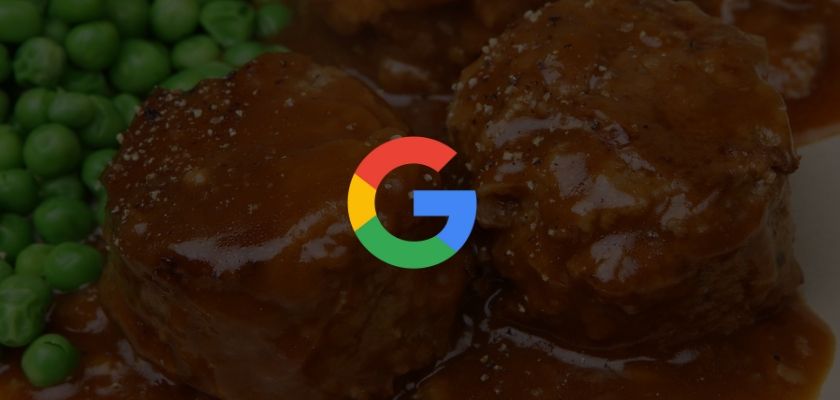Google told the owner of an award-winning UK cafe called “Fanny’s Rest Stop” that she was promoting “inappropriate and offensive content” after she was trying to advertise her business by promoting a meal of faggots and peas on the platform.
Jo Evans-Pring, 63, turned to her friend Chris Barnbrook for help setting up her online presence, to promote her business. The advertising was going well for her – until Google began to reject her advert.
“I’m a complete technophobe so I asked Chris to take care of posting stuff on the internet for me.
“We set up a website and a Facebook page to attract the locals to the café.
“Fanny’s has been doing really well because of the internet campaign. We’ve noticed a big change in the past couple of weeks.
“People have been coming from a little further afield because we’re paying for adverts when they google for places to eat.
“I posted an advert on the website for Fanny’s faggots with peas and onion gravy, a pretty traditional meal and one of my favorites, on the 27th.”
But then Evans-Pring received an email from Google the day after a new advert went live, telling her that her advert had been removed.
“Recently, a post was removed from your Business Profile,” the email said. “To help ensure your posts create a positive experience for users, please review our content policy.”
“Me and Chris had a look, and realized they’d moved the faggots one – and we couldn’t think it was for any reason other than it having the word ‘faggots’ in it,” said Evans-Pring.
Faggots is a traditional British dish and has long been popular in the Midlands of England as well as the Mid and South Wales. It’s made from minced off-cuts and offal and is often served with gravy and peas.
But the word “faggot” was likely misunderstood by Google’s algorithms and Google probably thinks that it’s referring to the pejorative.
Google’s content policy says:
“Published content cannot promote hatred or incited violence against individuals or groups based on ethnic origin, religion, disability, gender, age, veteran status, sexual orientation or gender identity.
Content cannot be used to harass or bully individuals, including direct physical threats or exposing private information that could be used to carry out implied threats.”
Evans-Pring said that she was “absolutely startled by what’s happened” and claims “the world’s gone totally mad if people are getting worked up over that”.
She added, “People need to spend their time dealing with real problems, not things like whether or not the word faggots when selling that meal is hateful.
“After going over their content policy, the only thing I could see was that it might have been thought of as obscene, profane, or offensive.
“We thought it might be for the word ‘faggots’ – which we felt was a bit ironic, as the café anyway is called Fanny’s.”
The term “fanny” is British slang for referring to female genitals.
“We were more amused by this more than anything else, but we’re finding it a little concerning now for what this means for businesses if words are policed.”
Ms Evans-Pring said that she found the situation funny, initially but then become infuriated by the decision, saying: “We were totally sidelined by it, to be honest.
“At first, we found it kind of funny. But ultimately we’re both furious by the decision.
“I don’t really associate the word ‘faggots’ with anything offensive, and yet someone has made a decision that’s affecting my livelihood.
“Thinking of all the nasty stuff that’s on the internet, why are they wasting their time with Fanny’s Rest Stop Café?
“We’re just asking – what’s the world coming to?”






















